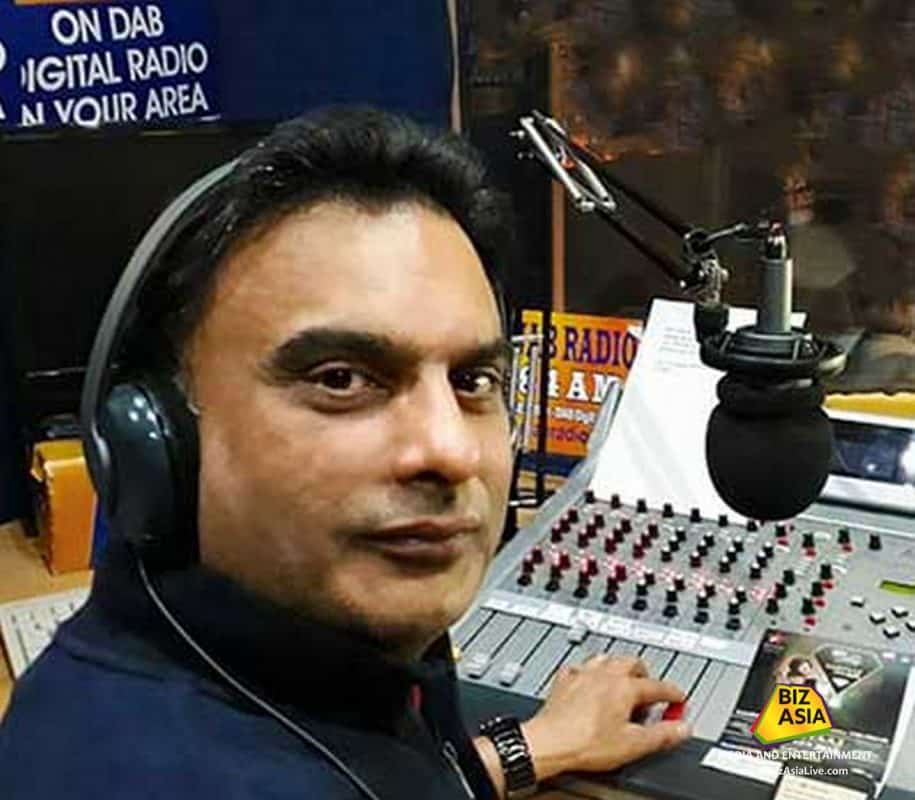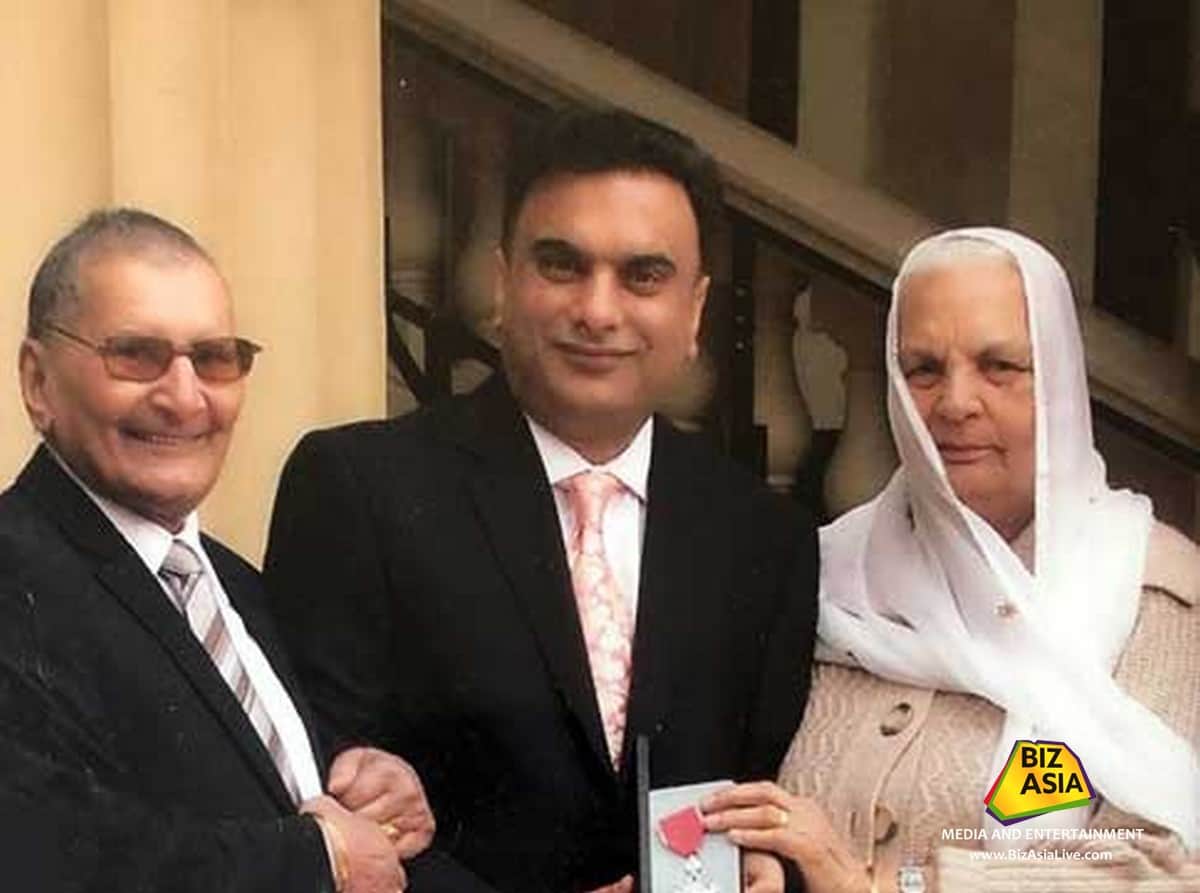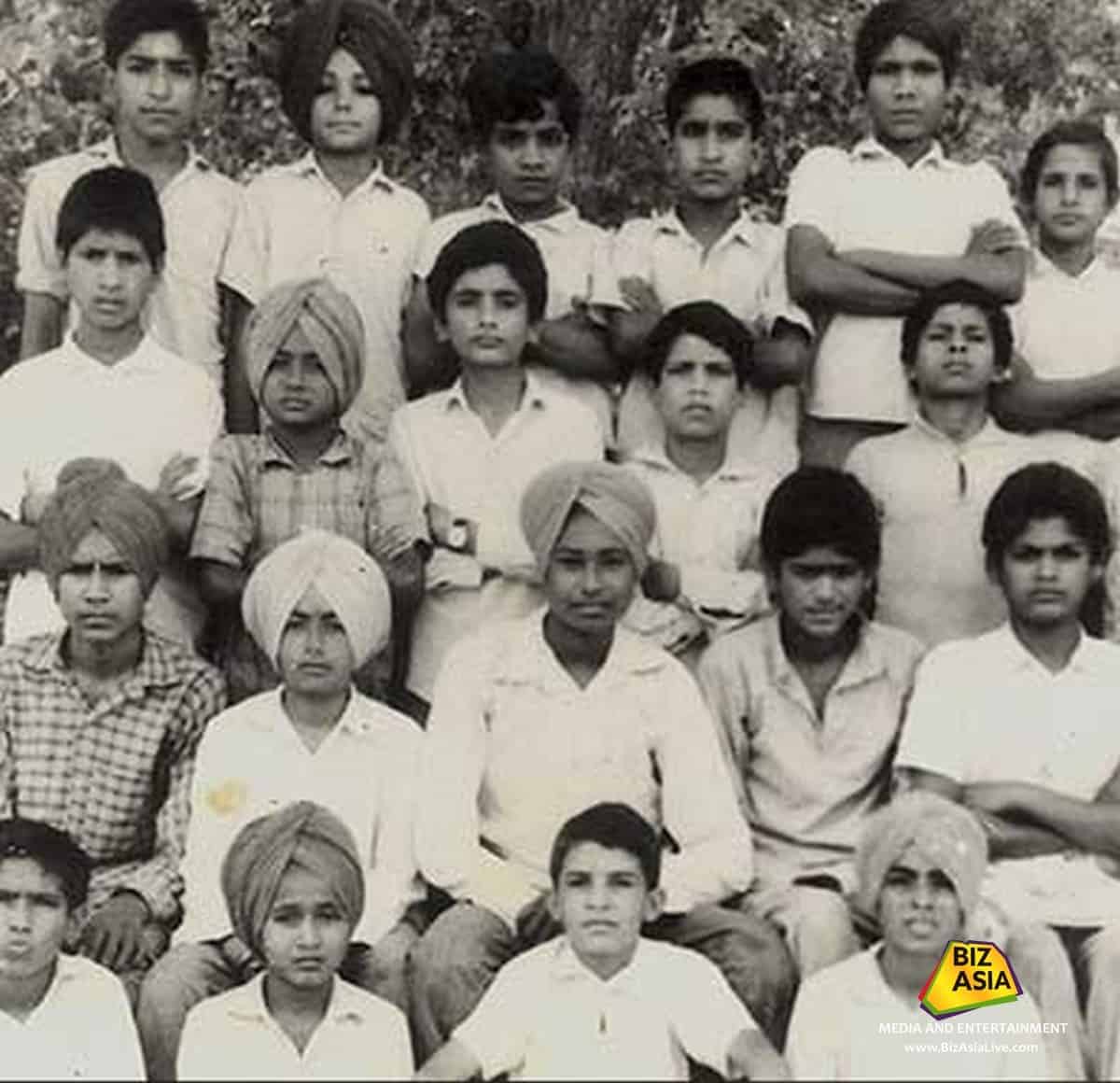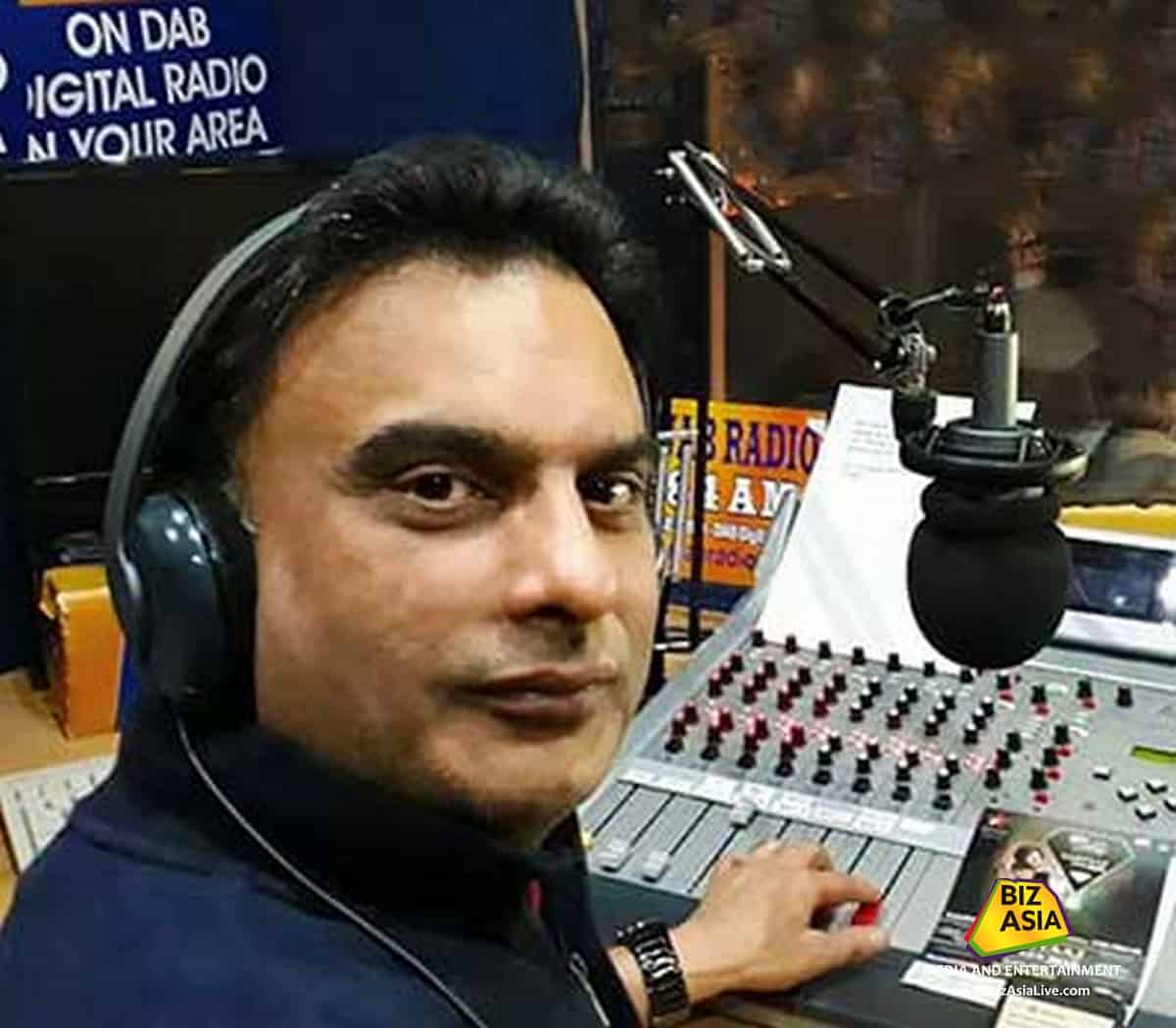Surjit Singh Ghuman on 21 years of Panjab Radio: “I love supporting the community”

From arriving in the UK from Punjab at the age of 13, unable to speak English, how did an immigrant receive an MBE, win numerous awards and become a hero of his community? Today, on the 21st anniversary of Panjab Radio, BizAsiaLive.com catches up with its Managing Director, Surjit Singh Ghuman MBE.
Surjit, let’s rewind the clock back – tell us about your first job?
Airline catering. I was in the hot kitchen, preparing meals for the passengers. Many immigrants used to work “behind the scenes”, so kitchens, cleaning, laundry work, factory work etc.
You became a magistrate before setting up Panjab Radio, tell us about the journey from then through to setting up Panjab Radio?
I actually did three jobs, then in 1983 my father sold his house and bought me a corner shop. As the shop was based in, shall we say, a predominantly white area, that’s where I first improved my English, because I was speaking it all the time. I made English friends and from there I got introduced to the Thames Valley adventure playground, which is a charity for disabled children and adults. One of the magistrates there put my name forward, and at the age of 27, I became the youngest magistrate in the country, as well as the first Sikh magistrate. I retired at the age of 35, as I sold my shop, and then the opportunity came to work on a 28 day RSL licence, which was Panjabi. At the end of the 28 days, we had numerous phone calls, whereby the callers said we needed to make this a permanent fixture, however, at the time, there were no frequencies available and so we started broadcasting on Sky, which gave birth to a full time Panjabi radio, and in the year 2000, Panjab Radio became the first 100% Panjabi music policy and Gurbani radio station in the world.
What was the thought process behind starting Panjab Radio?
I was listening to a Panjabi song and the lyricist was taunting mother tongue Panjabi, taunting it’s sons that you’re neither mine nor anybody else’s, because this is what you have done to me, you have diluted Panjabi. This actually made me cry, that my mother tongue was taunting me, that you have not looked after me. My six year old daughter at the time, she came and asked me for pocket money, So I said to her, ask me in Panjabi and I will give it to you. She said no three times. I said you won’t get it unless you ask in Panjabi. She said I won’t speak in Panjabi, I would rather not have it. It hit me that this was an issue that probably happened in all households. I couldn’t believe that she wouldn’t even speak Panjabi in return for receiving pocket money. Fast forward four years and she could speak and read Panjabi and she, along with my other three daughters, all at some point worked at Panjab Radio, talking in Panjabi on Reception and even presenting. One of my granddaughters, at the age of six has recorded some station idents also, so the thought process here is to get the youngsters embedded into Panjabi and Panjabi culture at a young age.
Why is community so important to you?
Community is important because we do need to look after our own. It’s important because the community needs something like Panjab Radio in order to fulfil what they want and need. I remember when I came from India, every Sunday there used to be a thirty minute Panjabi segment on the BBC and everyone used to drop everything just to watch that programme. The community needs a lot of help, especially the first and second generation, because they don’t have access to a Panjabi service due to the English language barrier, so Panjab Radio is there to provide this service to the community.
In 2012, you received an MBE for services to Radio. How did that make you feel?
This definitely came out of the blue! I didn’t know this was happening at all. On 16th November 2011, which is also my birthday, I received a letter from Buckingham Palace, to let me know that I had been nominated for a MBE and that the presentation would be happening on 14th February 2012. This was a real surprise and honour. This was a proud moment for my parents, as they came to the UK with just their suitcase and a lot of debt, and you can just see the beaming smile on my Fathers face in the pictures. This was my last official engagement before my Father passed away in April 2013, so this really meant a lot that he could be by my side.

Receiving a MBE is truly a great achievement, but aside from this, can you tell us what else you are proud of?
I would say that my proudest moment is starting Panjab Radio. Many people talked about their community having their own media, but nobody was coming forward, as they were looking at their own benefit/profit/balance sheets, rather than providing a service. Even today, 99% of the time, I still think with my heart and not my head. I think of an idea that will benefit the community and don’t look at the balance sheets, but the benefit to the community. My eldest daughter has been a presenter for less than a year and has run some thought provoking shows on controversial topics that other stations do not touch upon, such as female infanticide, widows and untouchables in India and dowry deaths, again all broadcast in Panjabi, which I think is a great achievement seeing as she is born and bred in the UK.

As well as founding Panjab Radio, even after 21 years, you are still presenting and very much front of house. What do you get out of being on air?
I get a lot of pleasure, a lot of good wishes from listeners and I love supporting the community. From retiring at an early age, I went on to work seven days a week and I still do this, working 12 hours a day, starting at 6.30am, and the buzz is still there to this day! Panjab Radio was started from the heart, not as a business, and as I mentioned before, the community really needed it. Being a Founder of a long standing company hasn’t changed my outlook or work ethic. I am still one of the cleaners, one of the receptionists, one of the admin staff and one of the presenters, with 12 shows per week.
I think of an idea that will benefit the community and don’t look at the balance sheets, but the benefit to the community.
How are you celebrating your 21st anniversary?
It is very difficult with the pandemic, the ups and downs of lockdowns/restrictions etc to celebrate as we usually do. For 19 years we have celebrated in a great fashion, with coaches coming from all over the Country and even overseas, with an average of 5000 visitors coming to the studio for our annual Anniversary event. We have Listeners all over the UK, Europe, India, Canada, America and many other countries and whilst they have heard the voices of Presenters and other Listeners on-air, they haven’t met in person, so the anniversary event is the focal point of the year, as everyone can mingle, tour the studio and also have a day of Langar (food provided by Panjab Radio) and religious programming. This year we are holding a rather more low-scale event, so still having the religious programming from 10-12pm, followed by pakoras, jalebis and tea. To ensure the safety of all, we are advising attendees to maintain social distancing and to wear face coverings. We also have a special feature on our website entitled “21 Years” so I do request that everyone visits www.panjabradio.co.uk to have a listen. They can also play the Panjab Radio version of “Where’s Wally” and try and spot me in my school photo!

What’s next for Panjab Radio?
I think Panjab Radio has reached its maximum, in the way of platforms. We are on satellite, analogue, online and DAB. So, what’s next? I think we need to look at our programming. Since we started two decades ago, unfortunately many of the first and second generation have demised. My daughter ran a special show on 5th October 2020, which is also my Fathers birthday, in memory of him and to remember listeners we have lost. That two hour show could have lasted all day as there are so many people we have loved and lost but still hold dear. We are on five generations in the UK now, with the first generation disappearing, so I think we might need to change our programming, however, we will still keep the Religious programming as there is a definite need for it. People can read the Guru Granth Sahib Ji (the Sikh equivalent of the Bible) but may not fully understand it, so Panjab Radio has 14 shows per week explaining the verses. As well as these shows, we provide the “Hukumnama – The Order of the day” directly from Harmandar Sahib, also known as the Golden Temple, in Amritsar, 6 days per week, which we also post on our Facebook page, @panjabradio.

What’s next for Surjit Singh Ghuman MBE?
Panjab Radio will always be a large part of my life. I will still be at Panjab Radio until the day I die, and I think my coffin will depart from the Panjab Radio studio! I will also spend time with my grandchildren and show them the ways of Panjab Radio, but there are no plans to go anywhere in the near future, so expect to hear more from Panjab Radio, my younger generations and myself for a long time yet!
For more information about Panjab Radio and to learn more about the man himself, Surjit Singh Ghuman MBE, you can visit their website at www.panjabradio.co.uk. BizAsiaLive.com wishes Panjab Radio a very happy anniversary and every success in the future.









